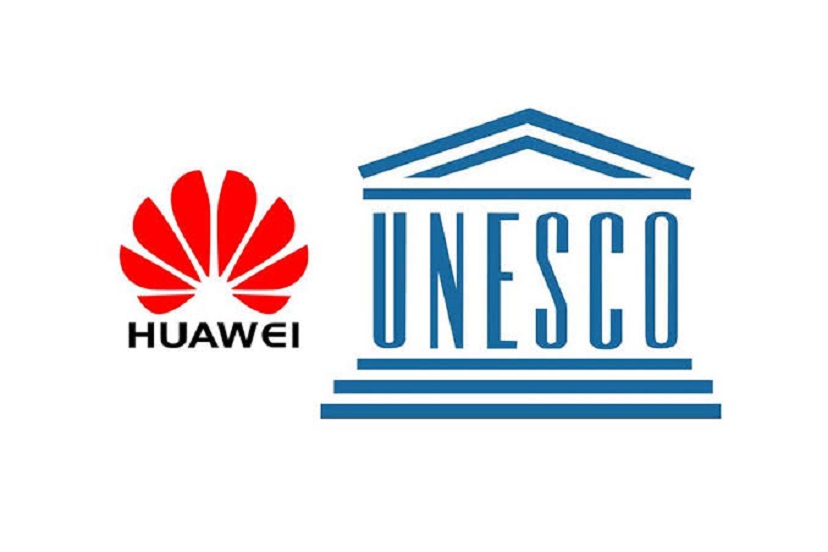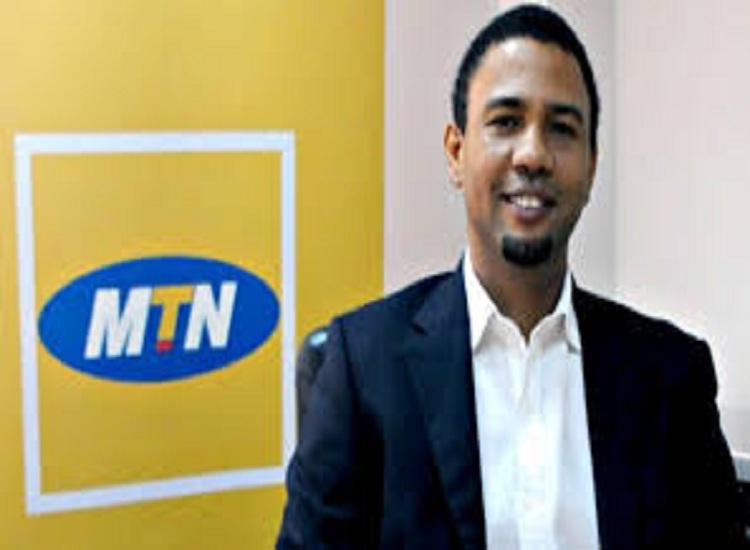Telecom
Huawei Partners UNESCO to Enhance Learning in Nigeria Through Technology

Huawei has partnered with the United Nations Educational, Scientific and Cultural Organization (UNESCO) to enhance learning in Nigeria through the use of technology.

Huawei said it is also making similar efforts in other developing countries, including Bangladesh, Côte d’Ivoire, Egypt, and Pakistan.
The company made this known during the Digital Talent Summit co-hosted by Huawei and the Institute for Lifelong Learning (UIL) as part of the company’s lead-up to the Mobile World Congress 2023 held in Barcelona, Spain, from Monday, February 27, 2023.
According to Huawei’s Vice President of Corporate Communications, Vicky Zhang, the company is proud to be joining forces with UNESCO top better deliver enhanced learning experiences in developing countries through the use of technology
“Getting the right education is often the key to success in life. As a major player in the technology sector, Huawei feels it is responsible for providing technical skills in all parts of the world, trying our best to include as many people as possible,” she said.
Zhang disclosed that Huawei started the Seeds for the Future program, a sub-project of the National ICT Talent Development, in 2018 by signing an MOU between the company and the government of Nigeria. She revealed that ten talented Nigerian students are selected each year for two weeks of ICT development and Chinese culture training.
She added that the program is expected to yield significant social impact and contribution that will inspire and help students find new solutions for the future ICT development of Nigeria and help the country develop rapidly.
Speaking during the summit, the Director of UNESCO’s Institute for Lifelong Learning (UIL), David Atchoarena, commended Huawei for its commitment and contribution towards enhancing educators’ use of technology in developing countries.
While inducting the company into the Global Alliance for Literacy (GAL), Atchoarena said, “Our rapidly changing world calls for concerted efforts and strong partnerships to achieve quality education and lifelong learning for all. Huawei’s expertise in innovation in learning will be a great asset to the Global Alliance for Literacy. Collaborative projects like ours will ensure no one is left behind on this journey.”
A beneficiary of Seeds for Future Nigeria, Anthony Oshiobugie Ugheoke, who was also one of the co-hosts of the Digital Talent Summit, described the program as a life-changing opportunity that has changed his broadened his horizon and changed his perspectives on life, especially as it relates to ICT.
On the opportunity given to him by Huawei to co-host the summit, Ugheoke said, “I am excited to be nominated to attend the Huawei Digital Talent Summit, which is part of the activities at the ongoing NWC23 here in Barcelona, Spain. This is one chance that I will forever cherish as a young Nigerian to be on a global stage like this and share the stage with giants such as the Director of UNESCO’s Institute for Lifelong Learning (UIL), David Atchoarena, and the Secretary General of the African Telecommunication Union (ATU), John Omo.
He thanked Huawei for the unique opportunity and urged future program beneficiaries to make the best use of the learnings to positively impact their lives, the country, and the continent at large.
Telecom
MTN Nigeria Wins Award for Best Use of Data @MarkHack 4.0 Awards Night

MTN Nigeria’s commitment to digital innovation took center stage at MarkHack 4.0, the annual marketing and technology conference held at Landmark Event Centre, Victoria Island, Lagos, on Friday, May 23, 2025, with the theme ‘Experience Ignited: Fueling the Customer’s Journey’.

L-R: Akinbulejo Onabolu, Head, Enterprise Segment, MTN Nigeria; Eneyi Obi, Global Chief Marketing Officer, Rise; Tobi Olanisimi, Marketing Manager, AB InBev; Martha Kayode, Marketing Head, PZ Cussonz; Sulaiman Shaibu, CEO, BFT Consulting Service and Daniel Adeyemi, Managing Editor, Condia Business at the MarkHack 4.0 Conference held at the Landmark Event Centre, Victoria Island, Lagos on Friday, May 23, 2025.
In a celebration of innovation, technology, and storytelling, the company also took home the award for Best Use of Data in a Marketing Campaign at the Nigeria MarTech (MarkHack 4.0) Awards Night. This award recognizes brands that have successfully transformed data into compelling narratives and actionable insights to meaningfully engage their audiences.
Akinbulejo Onabolu, Senior Manager, Segment Management, Enterprise Business at MTN, joined a panel to discuss the power of immersive technologies on consumer behaviour. Drawing from MTN’s launch of its 5G Digital Experience Centre in Abuja last year, Onabolu highlighted the rapid evolution of immersive technologies such as Virtual Reality (VR) and Augmented Reality (AR) stating “Our 5G centre is a sandbox for our customers to come and see how technology can shape things. At the launch event, we unveiled a smart city to customers, clients and dignitaries in attendance, with gaming and other tech experiences.”
On the intersection of data, AR and VR, he added: “Co-creating with MTN takes our minds to a platform where different partners, companies and creators can bring their buildings, products and businesses for people to see via augmented reality and connectivity, just swiping through and following through that journey.
“As a part of impacting our customer’s lives, a few years ago, we also played around with the Metaverse and we ended up creating some of our back-office processes with some of our customer journeys on augmented reality and virtual reality such that a customer somewhere can engage with a virtual agent to solve real life problems and integrating that back into our operating systems. As an organization, at a lot of our events, you will find a lot of AR and VR experiences.”
Speaking on how MTN is embedding immersive technology into its day-to-day operations, he explained that the company is prioritizing both internal capability development and external engagement. “85% of our organization has undergone extensive training on AI and that already is a great addition to our daily lives. We’re using it to do things differently, developing user journeys and brainstorming different things. In terms of Augmented Reality and Virtual Reality, we are working with organizations to develop training programs which we use internally.”
He described the bases for this tech as stable connectivity, high bandwidth, high speed and low latency. “Over the past year, we’ve doubled our 5G capacity across the entire country. Wherever you are, you’ll probably start to pick up 5G. With our FibreX service, we’re going way beyond connectivity to create the systems and platforms to support the ecosystem, AR and VR. In addition to this, we’re also engaging regulatory systems to start to tease this out and build the proper governance.”
The session, moderated by Daniel Adeyemi, Managing Editor at Condia Business, also featured insights from leaders in FMCG, consulting, and global marketing, all underscoring the transformative potential of immersive technologies for Africa’s future.
Telecom
MTN Nigeria Invests ₦900Bn in 2025 to Boost Network Quality in Lagos & Abuja

MTN Nigeria has announced a massive capital expenditure (CAPEX) drive for 2025, nearly doubling its investment to almost 900 billion Naira, as it seeks to significantly enhance network service quality in major cities like Lagos and Abuja and extend improvements to other areas.

Karl Toriola
This financial commitment, up from a combined total of approximately 440 billion Naira spent in 2023 and 2024, was detailed by MTN Nigeria CEO, Dr. Karl Toriola, during a recent interview on Arise TV.
Toriola highlighted that a key focus of the increased CAPEX will be on “putting additional capacity in a city like Lagos, particularly in Abuja, where you have a lot of buildings coming up, you need additional sites because there are coverage issues.”
Beyond these critical urban centres, the investment aims to bolster network resilience and ensure power stability for its infrastructure nationwide. This includes proactively addressing site outages by ensuring timely payment for operational necessities such as diesel for generators, a persistent challenge in the Nigerian operating environment
The CEO outlined the comprehensive nature of the upgrade process, which involves “placing orders formally, opening letters of credit, and then the equipment gets shipped in and installed.” He added that where necessary, MTN will be “acquiring new sites” and “laying fiber to the base station to create better stability.”
While the immediate CAPEX is geared towards improving existing service quality and capacity, this investment aligns with MTN’s broader goals, which include enhancing financial inclusion in underserved rural areas, suggesting a long-term vision for network expansion and service improvement that extends beyond metropolitan areas.
Customers are expected to begin experiencing the positive impact of these investments with a “significant improvement in quality of service” anticipated by the end of the second quarter or early in the third quarter of 2025, according to Toriola.
Telecom
Airtel’s AI Spam Alert Flags 9.6m Spam Attempts

Airtel Nigeria, telecom service provider, has announced that its AI-powered Spam Alert Service issued over 9.6 million spam alerts between March 13 and May 20, 2025.

As part of its ongoing commitment to protecting customers from unwanted and potentially fraudulent communications, Airtel designed the AI Spam Alert service to analyze traffic patterns and detect anomalies.
In the period since launch the AI pinpointed a total of 9,667,008 SMS as potential spam messages in the two months after its launch.
Of these, the system identified 528,080 on-net (Airtel-to-Airtel) and 9,138,928 off-net (from other networks) numbers as suspected spam messages, demonstrating the scale of the threat and Airtel’s advanced processing capability.
Airtel Nigeria is a subsidiary of Airtel Africa.
Commenting on this development, Dinesh Balsingh, CEO, Airtel Nigeria, restated Airtel`s commitment to protecting its customers.
“This milestone demonstrates the strength of our AI-driven infrastructure in combating the growing menace of spam and scam calls. At Airtel Nigeria, we are focused on connecting Nigerians and ensuring their safety and confidence while using our network.
“We understand that trust is the cornerstone of digital communication. That’s why we’ve invested heavily in intelligent systems that not only detect potential threats but also learn and evolve with data. As threats become more sophisticated, so will our solutions. As a company, we remain focused on leading the industry in innovation and customer satisfaction, ensuring that every Nigerian can enjoy a safer and smarter digital experience,” Mr. Balsingh said.
The Spam Alert Service is part of Airtel Nigeria’s broader strategy to integrate artificial intelligence into its core offerings to deliver smarter and safer experiences for its customers across the country.
Recall that the Spam Alert Service was launched on March 13, 2025. A groundbreaking and free solution from Airtel, it notifies users in real-time of suspected spam SMS messages by analyzing over 250 parameters.
The Airtel AI Spam Alert Service is available to all Airtel subscribers on smartphones and feature phones.

 E-Financial3 days ago
E-Financial3 days agoEFCC Recovers over N20Bn Stolen by Hackers from 6 Banks in Nigeria

 Telecom3 days ago
Telecom3 days agoEngr. Ikechukwu Nnamani Receives Two Prestigious @ABoICT Awards

 Telecom3 days ago
Telecom3 days agoFG to Deploy 80 Percent of 7000 Telecom Towers to North

 E-Business2 days ago
E-Business2 days agoNigeria Among Hotspots as Kaspersky Warns of Rising Ransomware Threat in Africa

 E-Financial3 days ago
E-Financial3 days agoPonzi Scheme Operators Risk N10m Penalty, Others- IST Chair

 E-Financial3 days ago
E-Financial3 days agoUBA Launches *919# Advance Top-Up Feature for Instant Access to Customers

 E-Financial2 days ago
E-Financial2 days agoFidelity Bank Plc Wins 2025 DBN Innovation Award for MSME Support

 E-Financial3 days ago
E-Financial3 days agoCourt to Deliver Judgment in NIBSS’ Suit against CBN, Others over BVN Database Management




























